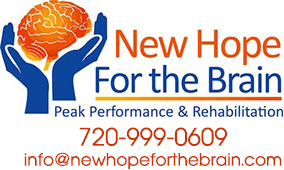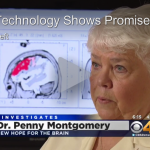EDUCATIONAL SERVICES
 Sadly, brain health has been a neglected or missing component in school curricula at all levels of education. With the widespread increase in sports injuries, Dr. Lippmann and Dr. Montgomery believe it is critical that prevention play a much greater role in our schools. They are committed to promoting brain health as an essential component of the health curriculum.
Sadly, brain health has been a neglected or missing component in school curricula at all levels of education. With the widespread increase in sports injuries, Dr. Lippmann and Dr. Montgomery believe it is critical that prevention play a much greater role in our schools. They are committed to promoting brain health as an essential component of the health curriculum.
CONSULTATION
Both Drs. Montgomery and Lippmann have extensive experience in working with private companies, agencies, non-profit organizations and educational institutions. Brain wave information is used to assess stress and support human resources staff by identifying the presence or absence of healthy brain functioning. This team of seasoned professionals excels at presenting evidence-based information on brain health in an engaging and clear manner. To book a speaking engagement, contact them at 720-999-0609.
Brain wave evaluations have proven invaluable to doctors and therapists with difficult cases. Diagnosis of specific disorders can be clarified by identifying underlying brain wave patterns.
Patterns found in brain wave recordings reveal the history of the brain and the challenges it has experienced. In Whispers From The Brain (2nd Edition), a book that Drs. Montgomery and Lippmann co-authored, more than thirty patterns of common brain dysfunction are identified that correspond to medical conditions typically diagnosed by behaviors. Thus, when reference to the actual brain waves is made, misdiagnosis is significantly reduced.
Examples of some of the conditions at risk for misdiagnosis include:
Attention Deficit Disorder: The behavioral symptoms of this condition are regulated by the frontal lobe of the brain. Frontal lobe dysfunction will result in the same behavioral symptoms regardless of what caused the dysfunction. Such events as a difficult birth, a head injury, loss of oxygen due to the cord around the baby’s neck at birth or a near drowning will all result in the behavioral symptoms of ADD. Yet, each of these conditions result in different brain wave patterns. Reading the actual brain wave patterns provides the most accurate diagnosis.
Alzheimer’s Disease: Even though there are several causes of dementia, all manifest similar symptoms such as memory loss. The most common diagnosis for memory loss is Alzheimer’s Disease. And yet, an acquired brain injury such as concussion is frequently the real cause of the memory loss. These two conditions result in very different patterns in brain waves. When a brain injury is the cause, remediation is possible through Neurofeedback. Because Alzheimer’s is a degenerative disease, it does not lend itself to such remediation.

